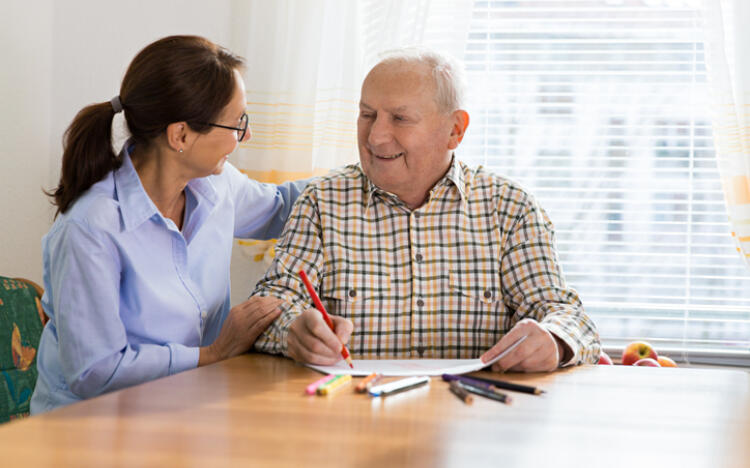Incontinence refers to the accidental or involuntary leakage of urine (urinary incontinence) or faeces (faecal or bowel incontinence), or both (double incontinence).1,2
Older people in general are more likely to experience incontinence because of medical issues which can cause incontinence, such as urinary tract infections, constipation or other bowel conditions, prostate gland trouble in men, or medicine side effects.2 Mobility problems caused by conditions such as arthritis can also make it difficult for some older people to get to the toilet in time. If you have dementia, you are more likely to have incontinence or toilet problems as the dementia can interfere with recognition of the sensation of needing to go to the toilet. You may also have trouble communicating this need, or getting to the toilet or removing clothing and underwear in time.1,2 Some people with dementia may also have difficulty finding, recognising or using the toilet successfully.1,2
Incontinence can range from a small leakage of urine or faeces to a total loss of bladder or bowel control and can be very distressing and embarrassing. It can also cause frustration for family, friends and carers. Although toilet problems are embarrassing, it is important to discuss them with your doctor and seek help. Incontinence can limit your activities which may add to problems such as depression and social isolation. If you are going out, there are websites and apps which can locate public toilets nearby and make it easier for people with incontinence.
Medical causes of incontinence, such as urinary tract infections and constipation, can often be treated or managed.1,2 If incontinence is not related to another medical condition, there are many strategies for managing routines, the environment, clothing and communication that can help reduce the frequency of incontinence or make it easier to manage. Aids and appliances are available that can assist in managing incontinence. Discuss any incontinence with your doctor as some medicines that may be used to help the memory symptoms of dementia can also contribute to or worsen both urinary and faecal incontinence, and some medicines used to treat incontinence can make memory worse.
See an incontinence nurse specialist who will be able to support you. A strategy such as timed toileting, which is put into place in the earlier phases of dementia, is likely to assist greatly when the dementia advances.
Questions to ask your doctor
- Could another medical condition (such as a urinary tract infection or constipation) be causing incontinence or is it directly related to the dementia?
- What are some strategies that can help manage or reduce the frequency of incontinence?
- What aids are available to help manage incontinence?
More information on incontinence in dementia
References
- Alzheimer’s Australia. Continence. Caring for someone with dementia. Canberra: Alzheimer’s Australia, 2012 (accessed 18 December 2015).
- Alzheimer’s Society of UK. Continence and using the toilet. London: Alzheimer’s Society of UK, 2015.
